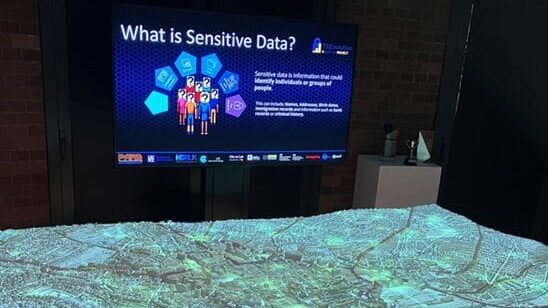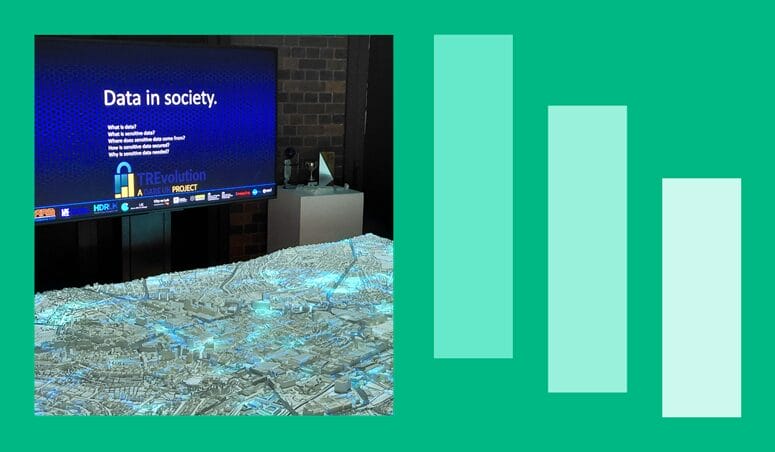TREvolution’s public engagement team at City as Lab began a series of in-person workshops with the King’s Trust recently. Dr. John C. Hickson discusses findings from the exercise and upcoming workshops for TREvolution.

Our first workshop drew in a diverse group of 12 young adults from the King’s Trust charity. The King’s Trust (formally the Prince’s Trust) helps young people from disadvantaged communities and those facing the greatest adversity by supporting them to build the confidence and skills to live, learn and earn. This group of young adults were part of the King’s Trust Explore program, designed to help young people into further education or work through building life skills.
City as Lab is home to the largest Projection Augmented Relief Model (PARM), a combination of a 3D printed model of a geographic area, in our case Nottingham City Centre, onto which we can project maps and data. At City as Lab we use this to engage with people on issues that matter to them, ranging from fuel poverty to urban heat and flooding.
The PARM uses innovative data visualisations and animations to bring to life how people’s data is created, stored and ultimately used in research. Sensitive data is a particular category of personal information, such as health data, that requires additional protection due to its delicate nature.
Gathering this group around our Nottingham City PARM, we spent a morning discussing the how’s and where’s of sensitive data generation, current and future storage of sensitive data, how data is de-identified for use, and finally several examples of how sensitive data can be used for public good.
Data matters to researchers, but how much does it matter to the young people we spoke to?
Most of the young people were already aware that data is collected through interactions with financial, governmental or medical institutions. The majority so far had not considered any broader uses to the data that is generated through these interactions or that this data would be used in public research.
Data de-identification, to avoid individuals being able to be identified, was a key part of the broader discussion with most of the young people agreeing that sensitive data should be de-identified and were happy with the current methods. Discussions around the de-identification of data in maps highlighted that some participants wanted data to be more broadly shown, for example, more anonymous than is the current standard.
What does this mean for TREvolution?
It seems that the current standards and direction of data management match the expectations of this group of young people. Here at City as Lab we still have a series of workshops to go before we can make any definitive conclusions on the expectations of the public, but we are looking forward to hearing from as wide a range of voices as possible over the next few months.
- If you would like to keep up to date with TREvolution and share your views, please sign up here.
- You can learn more about the King’s Trust here or about the work of City as Lab or PARM here.
About TREvolution
TREvolution is a programme of work shaping the future of sensitive data research in the UK by promoting shared standards and building trustworthy innovations to make research faster and more effective for the public good. Public involvement and engagement is at the heart of this work, making sure everything we do is open, inclusive, and shaped by what matters to people. One of the key ways we do this is through our workshops, where we bring people together to share ideas and shape the direction of our work.
